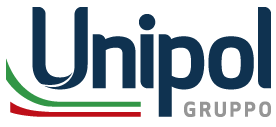Human Capital
- 857 Courses for employees
- 8,830 employees through classroom and webinar training
- 46% of open positions filled by internal candidates
- 228,533 Total training hours completed
To achieve the strategic objectives envisaged for 2018, the Unipol Group makes use of various levers inherent in human capital, ranging from training to organisational model simplification, from development plans to contractual harmonisation. With respect to training, the strengthening of internal skills supports the service model evolution plan. It is for this purpose that Unica was founded, the Unipol Group’s Corporate Academy, with an investment in direct and indirect training of €15.2m (direct investments for employees and agents amounted to €6.2m, whilst indirect investments totalled roughly €9m), focusing on professional and skills training for all Unipol Group structures in Italy. The goal is to spread and increase knowledge and share the managerial model while strengthening the corporate culture. Overall, 926 thousand training hours were completed, of which 75% by the agency network and 25% by employees.
The learning content, in line with the Business Plan objectives, was of a technical nature, commercial, managerial and in-house tutor training. Note in particular the Management and Development course for partners (Masters and Advanced) targeting all 1,800 Group managers, with the aim of developing and enhancing skills in the role of manager, encouraging the creation of a common resource management style. For agents, the IMA Masters course is included in a managerial development path to provide learning tools capable of promoting innovation.
As a subscriber to the Pact4Youth initiative, the Group has also activated a young Masters course involving new graduates, recruited by the Group and selected through a national-level competition for a two-year course that integrates classroom learning with in-the-field training to promote new human capital and support young people’s entry to the professional world.
Career enhancement is primarily through significant recourse to internal mobility, a solution adopted many years ago. This allows the company to satisfy most of its staffing needs, enhancing in-house professionalism and offering the chance to seize upon new job opportunities consistent with skills and aspirations.
The development actions include different tools to monitor and evaluate the professional abilities and skills available within the Group. Forming part of this scenario is the “Next Generation Programme”, dedicated to graduates under 35 years of age who have already gained professional experience in the Group. This course saw the involvement of around 420 young employees, 90 of which were selected for an ad hoc career enhancement path through group dynamics useful to effectively measuring skills alongside development action. In order to actively promote internal growth, the “Back Bone” process was implemented to identify high-potential individuals with skills strategic to the organisation, fuelling promotion plans and enabling suitable training and organisational levers.
In addition, and even more strategically important to meet the need for new skills and new organisational models, the process of consolidating digital and innovative skills among the human capital continued through the recruitment of 46 new figures (of which 22 from internal and intercompany mobility) that enhanced the Leithà, AlfaEvolution, Digital Innovation and Unica business areas.
With the goal of improving the well-being of its employees, the Unipol Group invests in the development of work-life balance programmes and initiatives, thereby making it easier for employees to work, decreasing the risk of stress and protecting personnel throughout the lifecycle. The initiatives range from assistance in caring for relatives (frangibility) to the MaaM training course (Maternity as a Master) for new parents.
To support occupational health and safety, aside from routine activities such as workplace inspections (more than 480 in 2017 compared to over 650 in 2016), health monitoring and activities linked to properly following reference laws, voluntary health monitoring activity and work-related stress assessment continued in accordance with the INAIL 2017 Guidelines and the current Health and Safety Management System manual inspired by the BS OHSAS 18001:2007 standard.
With regard to accidents in the workplace, the total number of accidents (233) was slightly higher than in 2016 due to the increase in accidents in transit (178), versus a slight decrease in workplace accidents. On the issue of safety, basic training courses have been available for some time to the insurance and banking sector companies operating in Italy. These courses were completed by 10,795 employees and 158 managers. Refresher courses are also available for employees on the basis of frequencies established by regulations. For the companies operating in Serbia, safety training focused on first aid and firefighting, involving 591 attendees for a total of 1,335 training hours provided. In the diversified companies, employee training focused strongly on occupational health and safety: in 2017, 747 employees were trained for a total of 7,715 training hours.
- 13 Pension Funds
- 85% percentage of employees enrolled in the Pension Fund
- €61m total contributions made
- 19 Assistance Funds 93% percentage of employees enrolled in the Welfare Fund
- €25.6m total contributions made
The welfare system encompasses institutions existing for many years, such as the employee pension funds and the healthcare assistance funds. More than 12,100 employees, including managers, are enrolled in the Pension Funds, while the Group’s Assistance Funds have more than 13,100 participants, including managers.
Mobility: considering the complex distribution of the Group throughout the country, it has made a particular commitment to promoting sustainable mobility. In 2017, the Home-to-Work Travel Plan was extended to 10 cities to cover around 40 offices. This allowed the implementation of a management system common to the various entities and consolidation of the sustainable mobility action, such as increased use of public transport and conference calls, the use of carpooling, the identification of mobility cycle action, investment in infomobility and training sessions on safe driving for employees most at risk, as well as other activities designed to achieve the objective.
Development activities have been companied by an in-depth review of company processes, roles and procedures so as to increase speed, simplicity and proactivity. All activities with an impact on employees and the organisation of work were discussed with the trade unions.
This model of union relations led to the use during the contractual renewal phase in 2017 of zero hours of strikes (vs. almost 32 thousand hours in 2016), 196,304 hours of union leave (2% less than in 2016) as well as the organisation of 88 union meetings (+57% on 2016) for a total of 13,427 hours (a decrease of 26% compared to 2016).
In the banking sector, recourse to the Solidarity Fund as envisaged in the previous Business Plan was implemented and completed, and a new agreement on access to the Solidarity Fund was signed. The arrangement for renewing the Supplemental Corporate Agreement was also formalised, envisaging improvements in terms of healthcare assistance and the structural definition of a variable company bonus in compliance with new regulations on welfare. The agreement adopted by the Group for the insurance companies was renewed in 2017.
All of this contributes to increasing the share of “ambassadors2” amongst employees, currently standing at 30% and so exceeding the 2016-18 Plan objective of 25%.


